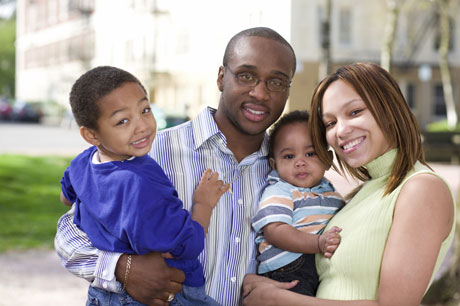 I’m going to be frank: We left our children with babysitters when they were young.
I’m going to be frank: We left our children with babysitters when they were young.
Not just once in a while for the random Neil Diamond concert or the Silence of the Lambs film, but regularly, on Friday or Saturday nights, and with real babysitters. You know, the teenage ones who lived down the street.
Most of the time, we knew the sitters, but sometimes, if one of these young girls couldn’t come, she’d send a friend.
I guess that would make the replacement sitters “strangers,” and I guess that would make us slacker parents, at least by today’s standards. No one would leave their kids with a friend of a friend these days (or, for that matter, go see Neil Diamond), and seriously, who needs a theater to see a movie?
I know we weren’t the only ones ruthlessly abandoning our children at home to watch The Wonder Years or play Nintendo. That’s because these babysitters were always über-busy — and we often met up with other parents, whose children were similarly tucked away at the family abode.
We, of course, meticulously left phone numbers of friends, relatives and if called for, restaurants. Texting, e-mailing, Twitter, even cell phones were still mere figments of Steve Jobs’ or Bill Gates’ or Al Gore’s imaginations.
We had fun on those nights out, and our kids grew up and had children of their own. They rarely leave these kids with baby-sitters and certainly never, ever leave them with anyone they (the parents) haven’t met, thoroughly vetted and utterly trust. Which makes me happy, because that’s my grandchildren we’re talking about.
Take ’em or leave ’em?
It’s not a stretch to generalize that today’s parents take the kids along more and leave them home less; that when their friends say, “Hey, come for dinner,” even if the night is Saturday, they mean, “We’d like you all to come over, including your 3-month-old, your 4-year-old and your 6-year-old.” And that while “date night” is special and reserved for mom and dad, it’s not always a Regular Thing; and that if a grown-ups-only evening is planned — and it’s really, truly just for grown-ups — someone better make that crystal clear or chances are there will be a few toddlers tumbling around in that mature mix.
It’s common to see babes in arms at top-end restaurants, even black-tie affairs. With more mothers breast-feeding these days and more people understanding that’s a very good thing, acceptance of this — while not universal — has grown.
“When I get invited to a wedding, I contact the bride or groom and tell them I need to bring my nursing little one with me,” reports Rachel Rainbolt, author of Sage Parenting. “Most of the time, they are good with that, but one friend did not want children there under any circumstances. I declined the wedding. She needed to respect that I had to meet the needs of my baby; I needed to respect that she did not want any children attending her private party.”
Money and maniacs
What’s generating this cultural shift toward toting the tots?
The economy comes to mind — just about everyone I interviewed for this story mentioned it. “Babysitters are expensive, and families don’t have a lot of extra money for sitters these days,” says Carrie Carroll, who founded The Twin Source and lives in Virginia.
And it’s true. Few costs have escalated as rapidly as babysitting fees (OK, maybe housing and groceries and clothing and...). But I paid $1.50 an hour back in the day, practically pennies. Rates now vary, depending on your location and the age, experience and training of your babysitter.
Typically, rates begin at about $10.50 an hour in the Seattle area (go to care.com for more information). Add the movie, the dinner, the Singapore Sling or the apple martini and, well, you see where that’s going.
Then there’s the trust factor. Who can, in all good conscience, leave a child or two in the hands of someone you don’t know really, really well, when our 24/7 news cycle, Babble.com and Law & Order: SVU keep Jerry Sandusky types front and center in our psyches and in our 3 a.m. night terrors?
Often, I wonder: Where were these maniacs when my kids were growing up? Undercover or unreported? “It’s a different world today,” says New Yorker Lyss Stern, founder of Divalysscious Moms. The truth is, whether kids are actually in more danger or there’s simply been an uptick in awareness doesn’t much matter. Either way, “it’s something we have to worry about,” Stern notes.
Craving quality
Safety and sitters aside, the simple fact that there are more women in the workforce impacts the way parents view what my generation called “quality time” with the kids.
Today’s moms — lots of them — work outside the home. That means they see their children for just a few scrambled, dinner-jammies-story-and-bedtime hours each night.
“Time with my kids is limited,” says Jennifer Bhat, a Seattle mother of two who works with University of Washington student housing. “I want to be there for the bedtime routine. And since they are not with one of us all the time, our hours with them are precious. That bleeds into weekends and evenings.”
Moms who don’t work outside the home still find little downtime to spend with the kids. Often, activities are nonstop — even for the littlest tykes. Mommy and Me and Mandarin morphs into swimming, soccer and skiing. Remember the Beat Generation? This is the Generation that Can’t Miss a Beat.
All of this leaves parents feeling guilty, unless they opt to spend all weekend with their kids, says Seattle clinical psychologist Jamila Reid. “While I’m happy to go out without my son, I do feel that tug, even if I know it’s not logical. I ask myself, is this really something I should be doing? I feel badly I’m leaving.”
And while French parents value adult time, according to Pamela Druckerman in her book Bringing Up Bébé, American parents value other American parents who elevate their children to star status — and seem to shun parents who don’t. “It’s the current mind-set that you’d be a bad parent if you didn’t bring your kids along with you,” says Reid. “And we are so engrossed in our own children, it doesn’t occur to us that other people aren’t just as delighted by them.”
Tobi Kosanke and her husband even include their 7-year-old daughter on date nights. “We left her home for my husband’s Christmas party and we ended up leaving early,” says Kosanke, who lives in Texas. Would they consider taking a vacation without their daughter? Heck no. They were shocked, she says, when a couple they know left their kids for 10 days — with grandparents — to go on a cruise. “Ten days?” asks Kosanke. “No way!”
Perfection nation
What else is going on? Seattle pediatrician Dr. Wendy Sue Swanson sees this redefined No Child Left Behind trend as another chance for today’s generation of kids-centric parents to achieve parenting perfection.
“We haul them along because of anxiety — we worry they might miss out on a precious moment or that we’ll fail to offer them every opportunity we can,” she says. “We have this compulsiveness about perfecting things and we think we have to share every journey with our kids.”
San Francisco music composer Jana Cole, for example, says she takes her kids “whenever I can,” because she wants them to hone their social skills. “I want them to interact with people one-on-one and to see me interact. They’ll take an interest in what others are doing and blend in and contribute,” she says. “Kids who learn these things will be more successful in life.”
That constant pressure to be perfect, says Swanson, is exhausting. “We’re bombarded with information, books and opinions — and those of us who write articles and give advice are part of the problem,” notes Swanson, who writes the Seattle Mama Doc blog for Seattle Children’s Hospital. “People tell us, ‘It just goes so fast.’ The message is: You better do this right.”
When Swanson and her husband decided to throw a holiday party for their friends, they spent considerable time figuring out ways to word the invite so people would understand that kids were not included. “The funny part? Everyone loved it and asked, ‘Why don’t we do this more?’”
Why not, indeed? Swanson is all for it. Time away from the kids helps build parents’ energy and creativity, she says.
Those rarefied, stolen moments also help preserve marriages and other adult relationships. “Creating a happy home requires intimacy and time alone,” says Swanson. “We are always caring for others; we need our playtime, too.”
Linda Morgan, ParentMap’s managing editor, is the author of Beyond Smart: Boosting Your Child’s Social, Emotional and Academic Potential and on-air parenting expert for KING TV.









